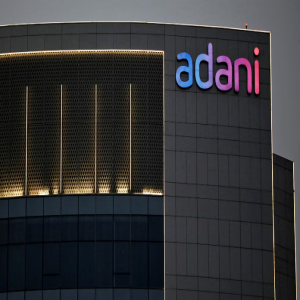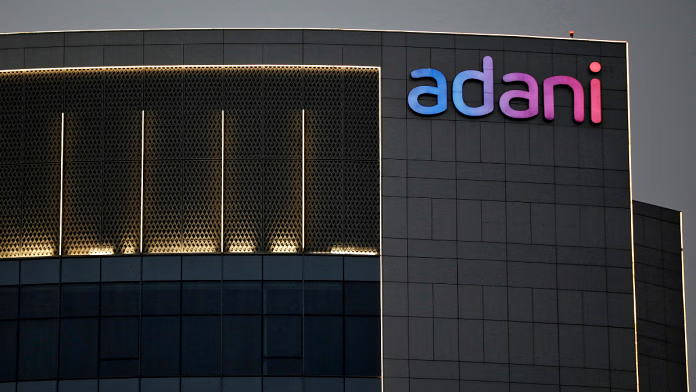

India, once proudly regarded as the world's largest democracy, is now embroiled in a web of deception and corruption. The interests of a few powerful individuals and corporations now shape the country's economic and political landscape rather than democratic ideals. Hindenburg Research has recently revealed a shocking truth. Madhabi Puri Buch, chairman of the Securities and Exchange Board of India (SEBI), is accused of owning tens of thousands of shares in a shell company set up by the Adani Group overseas. This revelation has sent shockwaves throughout the country, highlighting the pervasive corruption in India's financial and regulatory systems.
These findings have far-reaching implications. The Adani Group, a conglomerate with extensive interests in a variety of sectors, has long been criticised for its business practices. However, the discovery that the head of SEBI, the very institution in charge of regulating the securities market and protecting investors, may be involved in these activities is deeply troubling. It calls into question the integrity of India's financial system and how far it has been compromised by corporate interests.
However, this is more than just one person's actions; it is indicative of a larger systemic issue. The Bharatiya Janata Party (BJP), led by Prime Minister Narendra Modi, has repeatedly undermined the independence of India's democratic institutions. Over the last decade, the BJP has weakened the checks and balances that are required for a functioning democracy. Independent organisations that were once in charge of holding the government accountable have been weakened or co-opted to benefit the ruling party and its allies.
The judiciary, the media, and regulators such as SEBI have all been compromised. The BJP's strategy has been clear: control every aspect of the state, silencing dissent and crushing opposition. The party has weaponised the state apparatus to advance its political and economic objectives at the expense of the Indian people.
The NEET (National Eligibility and Entrance Test) question paper controversy is a prime example of this. The NEET exam, which determines admission to medical colleges throughout India, is a high-stakes examination for millions of students. There have been allegations that the question papers were leaked, resulting in a multi-crore scam. Instead of addressing these concerns, the BJP government quickly shifted blame to the National Testing Agency's (NTA) leadership, diverting attention away from the real issue.
Similarly, allegations of favouritism have been levelled against the UPSC (Union Public Service Commission) exam, which selects candidates for India's prestigious civil services. According to reports, children from families with close ties to the BJP's ideological parent, the Rashtriya Swayamsevak Sangh (RSS), have received unfair advantages. When these allegations surfaced, the government quickly changed the UPSC's leadership, once again avoiding accountability.
These incidents are not isolated; they are part of a larger pattern of corruption and nepotism that has come to characterise the BJP's reign. The party has created an environment in which institutions intended to serve the public are now used to protect and advance the interests of a small group of people. This is more than just an attack on democracy; it is an attack on the very foundation of Indian society.
Hindenburg Research's recent revelations about the Adani Group and SEBI highlight India's dangerous nexus of big business and politics. The Adani Group, along with Mukesh Ambani's Reliance Industries, have come to represent the concentration of wealth and power in the hands of a few. These corporate behemoths have reaped enormous benefits from their close ties to the BJP, gaining favourable policies and government contracts that have enabled them to amass vast fortunes.
This concentration of wealth and power has had disastrous effects on the Indian economy and its people. Public sector entities such as the Life Insurance Corporation of India (LIC) and the State Bank of India (SBI) have invested in the Adani Group, fuelling its meteoric rise. These institutions, which manage millions of Indians' savings, have been used to support the Adani empire. The outcome has been disastrous, with LIC and SBI suffering massive losses as the Adani Group's stock prices plummeted in the aftermath of the Hindenburg report.
However, the consequences are not limited to financial losses. The Adani Group, like other corporate behemoths, has played an important role in shaping government policy to benefit its interests. The Modi government's economic policies have been crafted to benefit these corporations, frequently at the expense of the general public. Privatisation of public assets, reductions in labour protections, and weakening of environmental regulations are all examples of policies that have prioritised big business over people's interests.
This has resulted in the Indian economy being increasingly dominated by a small number of conglomerates while the vast majority of the population struggles to make ends meet. The BJP's economic policies have exacerbated income inequality, with the rich becoming richer and the poor falling behind. The country's social fabric is tearing apart as the gap between the haves and have-nots widens.
This economic inequality has serious consequences. As wealth becomes increasingly concentrated in fewer hands, social tensions rise. Unrest is spreading throughout the country due to a lack of economic opportunities and the BJP's divisive politics. The party's emphasis on Hindu nationalism has widened communal divides, creating an atmosphere of fear and hostility. The rhetoric of the BJP, which frequently targets religious and ethnic minorities, has resulted in an increase in hate crimes and violence.
The BJP's destruction of India's democratic institutions is about more than just retaining power; it is about creating a system in which dissent is not tolerated and marginalised voices are silenced. The party's control over the media has ensured that the narrative is always in its favour, with critical voices marginalised or silenced. The judiciary, once a bastion of independence, has also fallen under the party's influence, with judges who rule against the government facing retaliation.
The end result is a hollowed-out democracy in which the rule of law is increasingly being replaced by the rule of the strong. The BJP's hold on power has been bolstered by its ability to manipulate state levers, ensuring that it faces no genuine opposition. The party's control over key institutions has enabled it to push through its agenda with little opposition, whether it is the contentious Citizenship Amendment Act (CAA) or the repeal of Article 370 in Jammu and Kashmir.
However, this concentration of power comes with a cost. As the BJP tightens its grip on the country, the cracks in its facade begin to appear. The latest revelations about SEBI and the Adani Group are only the tip of the iceberg. The party's corruption and cronyism are becoming increasingly difficult to conceal, and the Indian public is taking notice.
The BJP's strategy of avoiding blame and diverting attention away from its wrongdoings is no longer effective. The public is becoming more aware of the party's tactics, and there is growing dissatisfaction with how the country is being run. The BJP may have been able to suppress dissent in the past, but it is clear that the tide is changing.
The recent earthquake by Hindenburg Research serves as a wake-up call for India. The revelations about SEBI and the Adani Group are about more than just financial misconduct; they are also about the erosion of India's democratic institutions as a whole. The BJP's control over the state has enabled it to protect its allies while shielding itself from accountability, but this cannot last forever.
The people of India must reclaim their democracy. The BJP's corruption and cronyism have been revealed, and it is now up to the citizens of this country to hold the government accountable. The party's attempts to undermine the democratic process must be opposed, and co-opted institutions must be returned to their proper place.
India's future is dependent on its ability to rebuild the foundations of its democracy. The judiciary, media, and regulatory bodies such as SEBI must be free of political interference and allowed to operate independently. The concentration of wealth and power in the hands of a few must be challenged, and economic policies must be reshaped to benefit the many rather than the few.
The BJP's vision for India is a society in which the wealthy and powerful dictate the terms, leaving the rest to fend for themselves. This is not the India imagined by the country's founding fathers, nor it is the India that its people deserve. It is time to end the BJP's stranglehold on the country and restore the principles of democracy, equality, and justice.
The task at hand is difficult but necessary. The BJP has demonstrated a willingness to go to any length to maintain power, but the Indian people have the ability to change the course of history. Hindenburg Research's recent revelations have shed light on the corruption that has infected the country's institutions and provided an opportunity for change.
The road to recovery will be long and difficult, but it is one that must be followed. As the old saying goes, the fox's trick may be revealed one day, but all needle moss sellers will multiply in order to survive. The BJP's tricks have been revealed, and it is now up to the Indian people to hold those who seek to undermine democracy accountable. The country's future is at stake, and it must be fought for with all the strength and courage the Indian people have to offer.